Why is this the 'most instagrammable' bird?
- Published
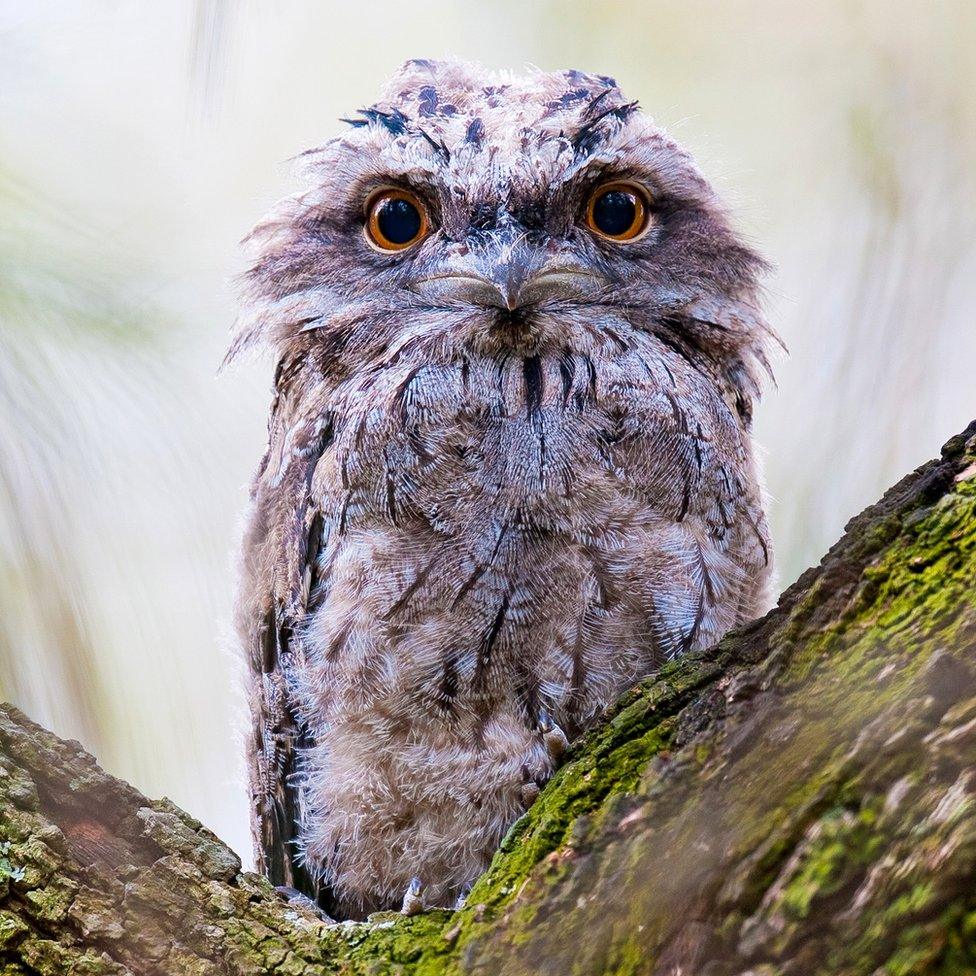
Frogmouths are nocturnal birds, hence the very large eyes, which may have contributed to their popularity
You don't often read the word "instagrammable" in a scientific paper.
But a recently published study that asked "what makes a great bird photo?" has officially deemed the frogmouth the most instagrammable of avians.
The result led the researchers to use another term that I have seldom read in an academic study: "poetic justice". The frogmouth was once designated "the world's most unfortunate-looking bird".
It has now been redeemed by Instagram's millions of animal photography fans.
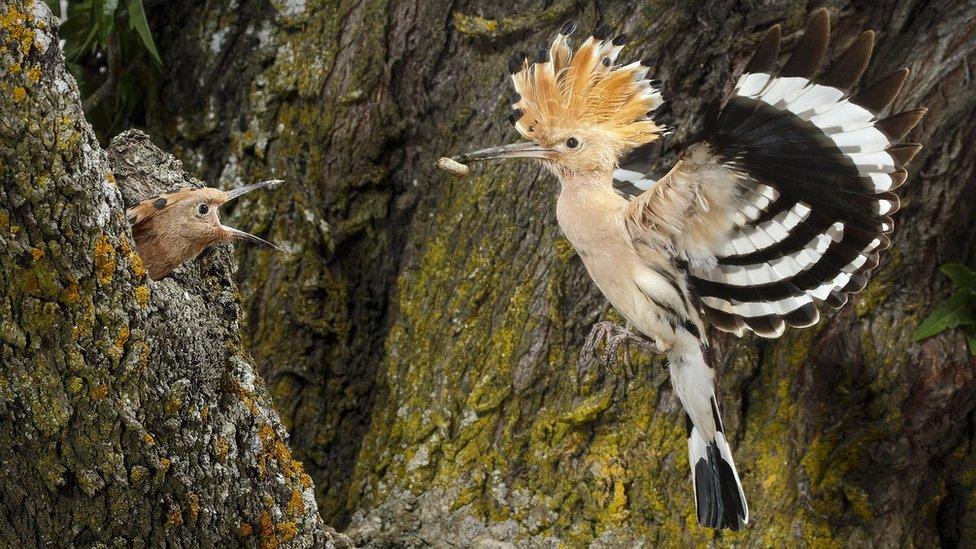
Fancy, decorative plumage appears to boost a bird's ranking in the study
The result surprised the scientists themselves, but it has also revealed some of the secrets to attracting "likes" - at least if you're an animal.
"It just does not look like any other bird, with its almost anthropomorphic facial features," said lead researcher Katja Thommes, a psychologist from the University of Konstanz in Germany.
"And frogmouths are quite rare. Even in our 20,000-image database, it featured only 65 times. I reckon the ornithologist community celebrates every sighting of this bird with tons of likes."
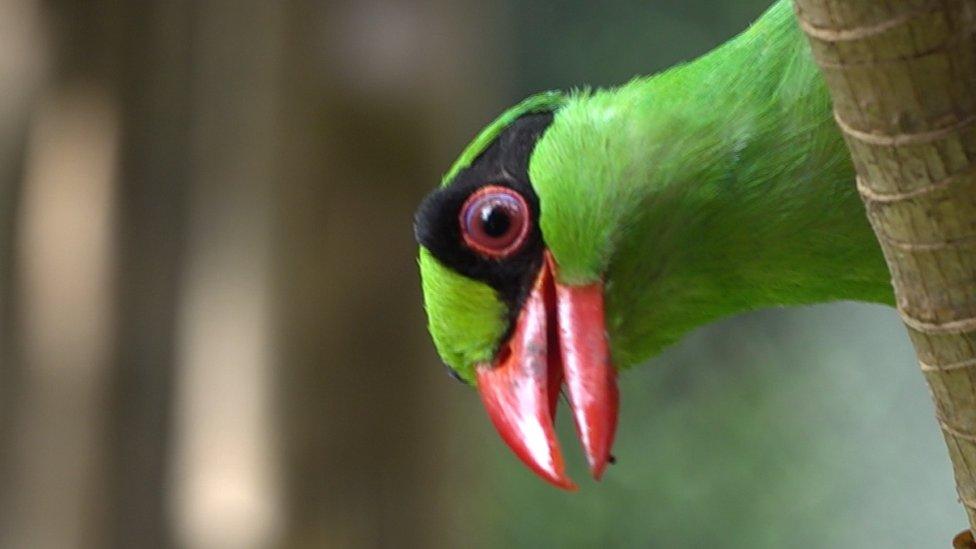
Bright colours appear to boost a species' Instagram ranking
Dr Thommes, who is a photographer as well as a psychologist, used the photo-sharing platform to investigate what makes a good photo - ranking bird species based on the number of likes that images of the species received.
"It's the perfect field of investigation - it is a place where countless active users from all over the globe interact with an enormous amount of visual content," she said.
Dr Thommes and her colleagues found that decorative plumage helped a bird's ranking. "The emerald turaco and the hoopoe, both with crown-like head feathers, scored highly," they wrote in their paper in the psychology journal i-Perception, external.
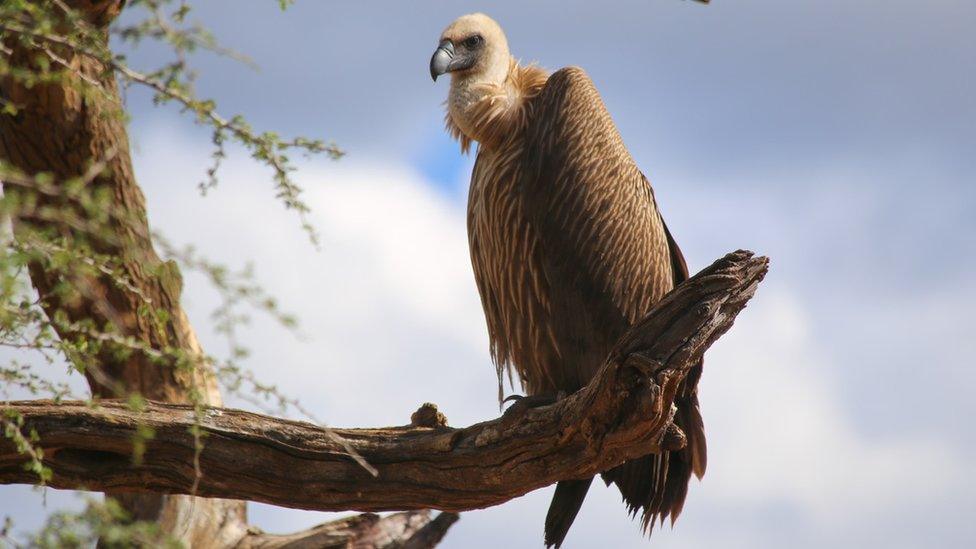
Vultures were some of the least 'liked' birds in the study
Blue plumage is also "most aesthetically appealing by far" - something that chimes with other studies that have examined what tempts us to engage with tourism images, external. Think of all those pictures of pristine beaches, blue skies and sparkling seas.
Seabirds though, at least in this study, appear to be far less appealing. The sandpiper and the oystercatcher joined storks and vultures on what the researchers called the "not-so-pretty birds" end of the list.
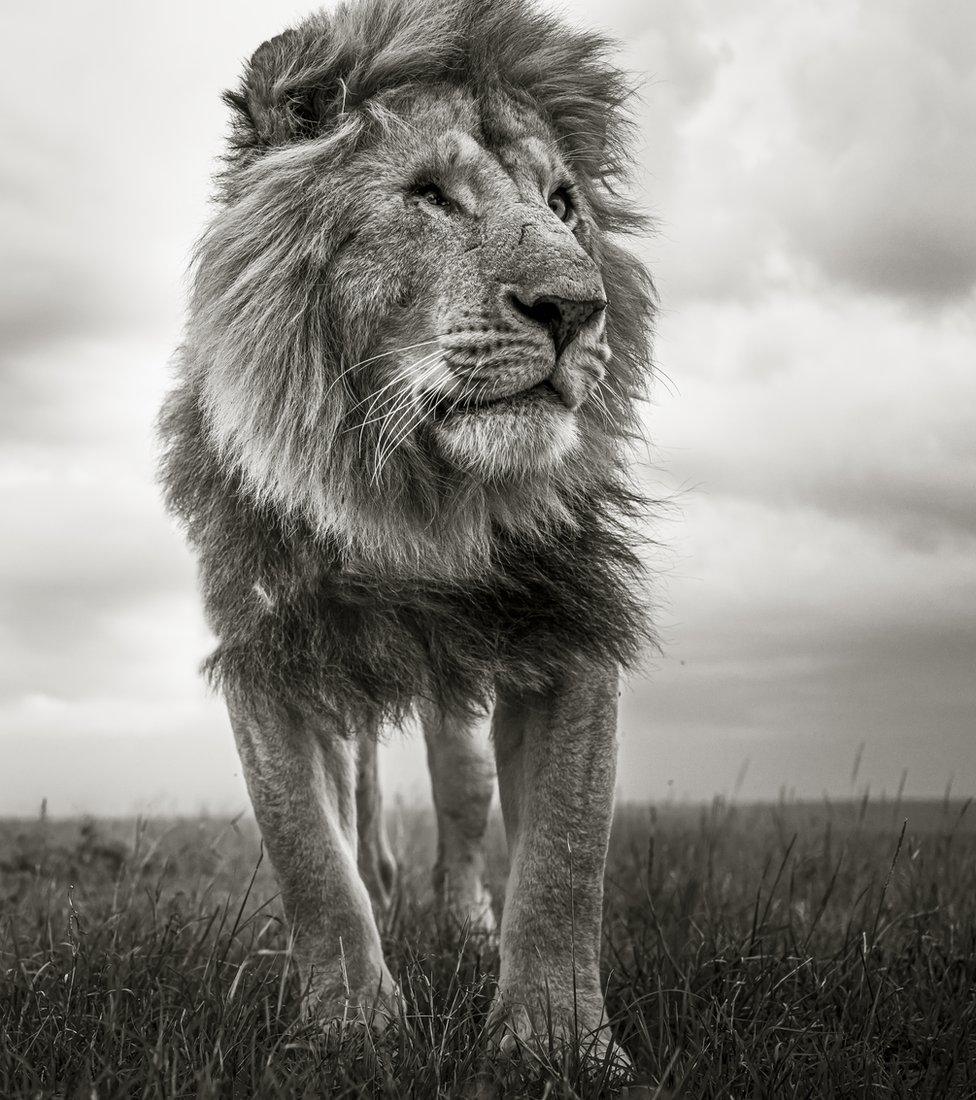
Graeme Purdy, who captured this shot, says that popular does not necessarily equate with beautiful when it comes to wildlife photography
But shareable and likeable does not necessarily mean the most beautiful, says wildlife photographer Graeme Purdy, who shares his images on his Instagram account, external.
"Anything cute and cuddly evokes something in human nature - and particularly anything with big eyes," he told me.
Graeme, who recently took second place in the prestigious Sony World Photography Awards, external, says he tries to use the platform to engage people with images that he values.
"On Instagram, people generally love big cats and elephants, but if I post what I think is an amazing photo of a mongoose, it'll get no likes. So great images and popular images - those two aren't 100% correlated."
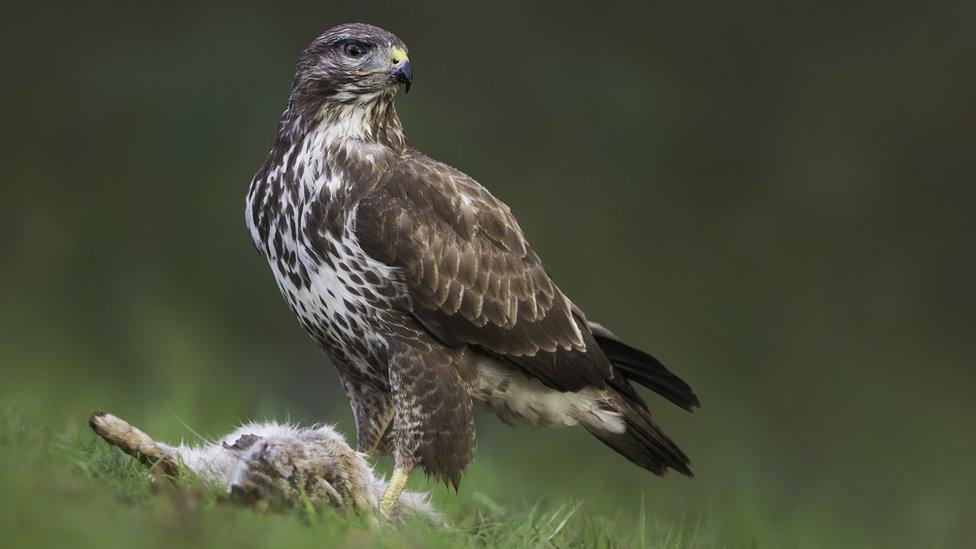
People seem to prefer a vegetarian to a meat-eating bird
That view certainly chimes with some of Instagram's broader follower statistics.
While the most popular wildlife photographer on the platform has 6.9 million followers, external, an extremely fluffy (and very well-dressed) Pomeranian dog called Jiff Pom has more than 10 million.
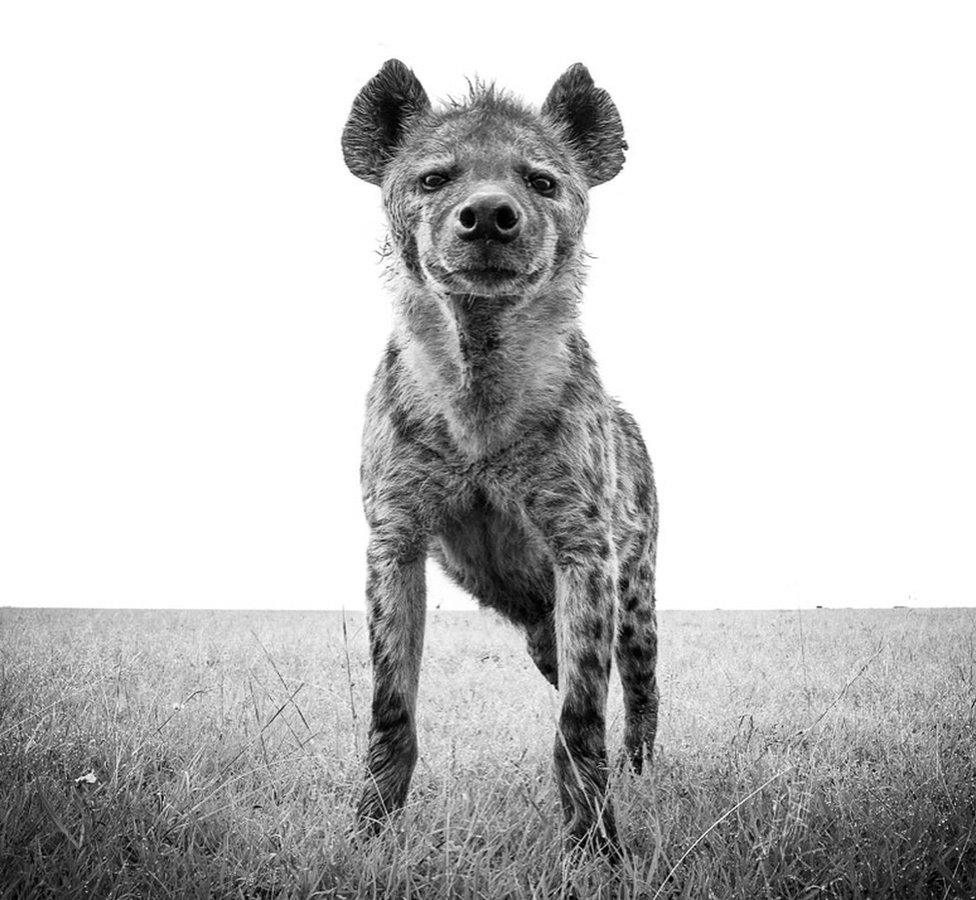
This image is called Don't Mess With Me and is one of photographer Graeme Purdy's favourites. 'Hyenas are amazing but people just like big cat images more,' he says
Like so many people, I have probably spent too much time staring into social media, as well as sharing pictures from my own lockdown-shrunken world; my dog, for example now has his own Instagram account. But glimpses of wildlife photography - and of cute animals - have become a welcome escape from reality.
There are also wildlife-focused accounts that try to channel cuteness into conservation awareness. Last year The Ecology Project published a list of photographers who use their imagery for "social good", external.
"And I guess," adds Dr Thommes, "just looking at photos of wildlife has a positive impact on people, especially in times like these."
Follow Victoria on Twitter, external or Instagram, external
Related topics
- Published17 March 2021
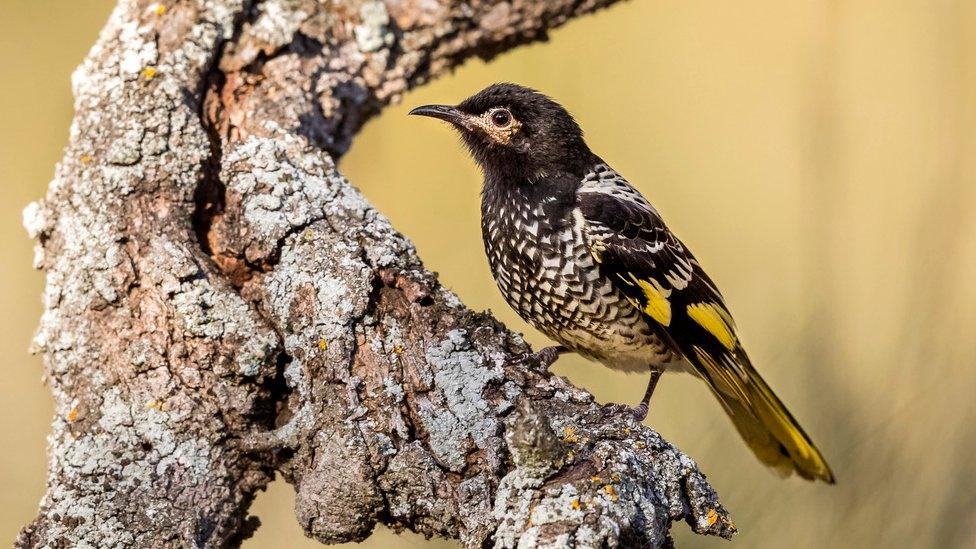
- Published8 January 2021
